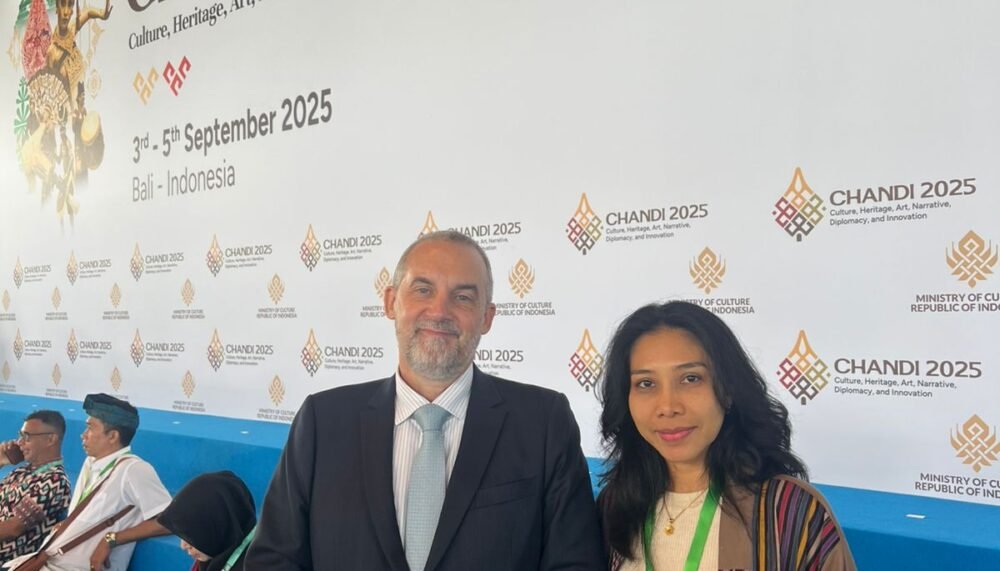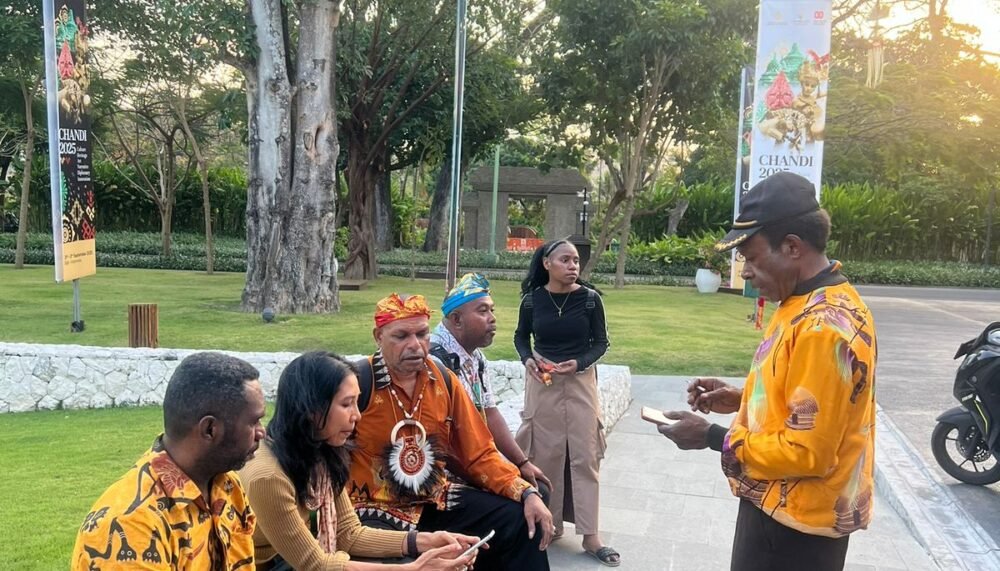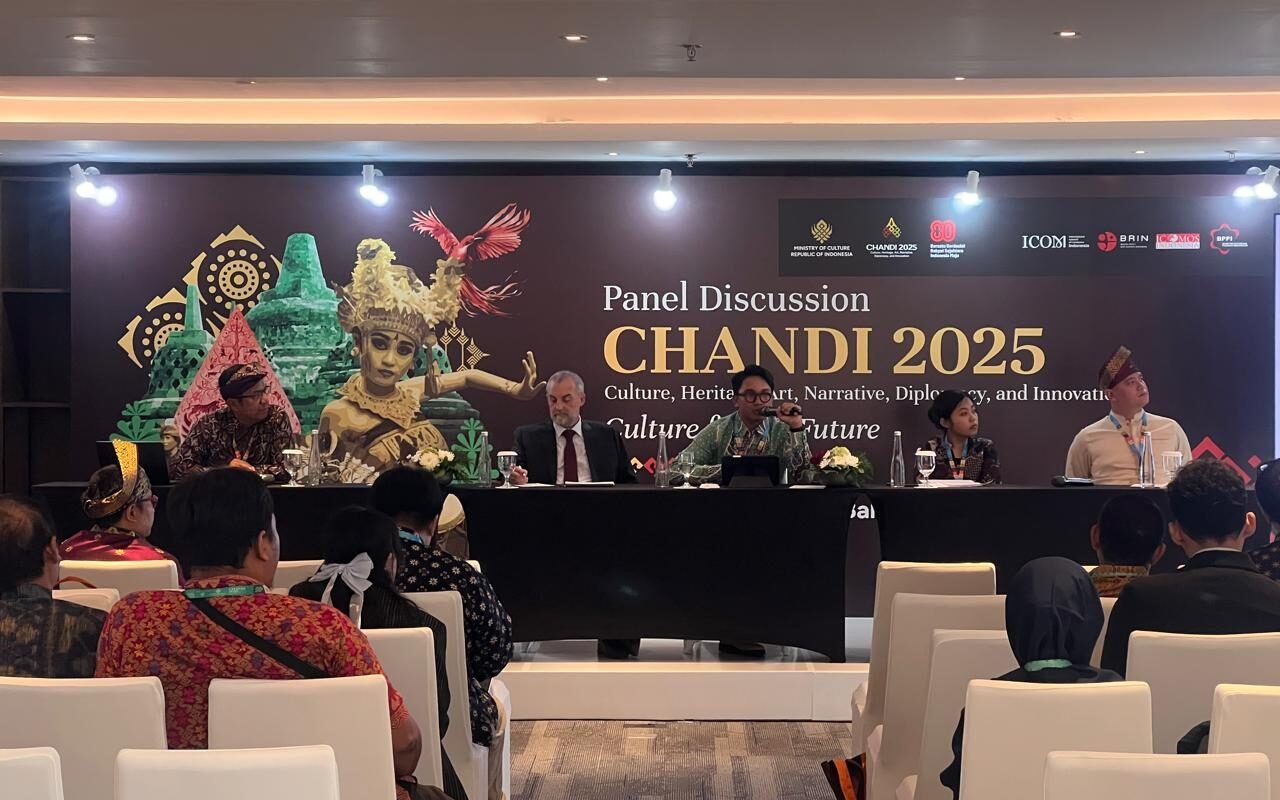Word: Ayu Arman
“Responding to the Climate Risks to Heritage and Fostering Culture-Based Climate Action”
Thank you for this precious opportunity.
My name is Ayu Arman, a biographer and travel writer. For more than 16 years, I have traveled across Papua to write about nature, culture, history, and the local communities of Papua. These journeys have been documented in books and on the Our Islands website.

Me with Professor R Michael Feeneer– Professor of Cross Regional Studies at The Center For Southeast Asian Studies at Kyoto University
When we talk about climate risks to heritage, we are essentially talking about nature and culture. Nature shapes culture, and culture nurtures nature. They sustain each other, and it has been proven that local community wisdom has safeguarded more than 80% of the world’s biodiversity.
In Papua, heritage is not merely monuments but a living culture—rituals, wisdom, and traditional knowledge systems that sustain the environment. One example is the sasi ritual, customary rules that regulate when marine and forest areas can be opened or closed to allow nature to recover. There are sacred zones where hunting and logging are strictly prohibited, and there are initiation houses where young people undergo months of traditional education.
One of my most profound experiences was witnessing initiation education in Tambrauw, Southwest Papua. Initiation is a traditional schooling system where teenagers learn ecological knowledge and spiritual values through customary practice. Elders teach them how to read natural signs: the direction of the wind, bird songs signaling seasonal change, medicinal plants, sustainable ways of hunting and fishing, healing practices, and the spiritual connection with their ancestors.

Saya bersama, kepala Dinas Kebudayaan Provinsi Papua Barat Daya, bapak Martin
Here, the forest is the library, the elders are the teachers, and daily life is the curriculum. This education not only instills ecological knowledge but also moral values, discipline, and the awareness of being guardians of the balance between humans, nature, and ancestral spirits. It is this ecological consciousness that helped Tambrauw become the first Conservation District in Indonesia in 2018, committing to protect over 80% of its territory as conservation areas.
Tambrauw’s landscape is extraordinary—mountains, valleys, hundreds of rivers, a Pacific coastline, World War II heritage sites, vast pristine forests, and strong Melanesian cultural traditions. Despite its wealth in oil, gas, nickel, coal, copper, and gold, Tambrauw has chosen a path of green development: aligning community livelihoods with sustainable practices, protecting customary rights, strengthening local community knowledge and adat education, and enacting conservation-based local legislation.
This journey gave me two important insights:
- A green region can only exist through ecological awareness and political commitment from both leaders and communities.
- In today’s climate crisis, when the capitalist worldview deepens the damage, the way forward is to return to local community wisdom—placing culture, heritage, and community knowledge at the very heart of climate action.
Culture and local community knowledge are the foundation of human awareness to safeguard the Earth. If we want to protect this planet, we must listen again to local community voices—for they have preserved and nurtured it for centuries.

